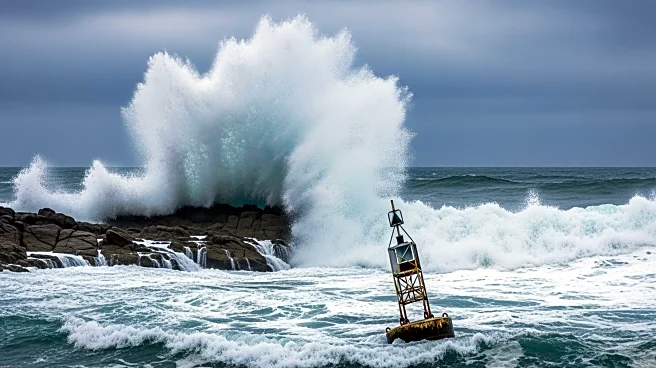What's Happening?
Catastrophe modeler KCC has estimated that privately insured losses from Hurricane Melissa will reach $2.4 billion. This estimate aligns with earlier projections by Verisk, which ranged from $2.2 billion to
$4.2 billion. Cotality, a property intelligence company, provided a similar estimate of $1.5 billion. The hurricane caused significant property damage, estimated between $5 billion and $9 billion, due to wind, surge, and flooding. Reinsurers are expected to absorb most of the payout, as local insurers cede the majority of their catastrophe risk. The hurricane has also triggered a $150 million parametric catastrophe bond issued by the International Bank for Reconstruction and Development.
Why It's Important?
The financial impact of Hurricane Melissa underscores the vulnerability of the Caribbean region to natural disasters and the critical role of insurance and reinsurance in mitigating economic losses. The event highlights persistent protection gaps, particularly in household and small-business insurance, which could lead to significant uninsured losses. The triggering of the parametric catastrophe bond demonstrates the importance of innovative financial instruments in providing rapid financial relief to affected regions. The situation also emphasizes the need for increased insurance penetration and improved disaster preparedness in vulnerable areas.
What's Next?
The payout from the parametric catastrophe bond and the Caribbean Catastrophe Risk Insurance Facility will provide financial support to Jamaica, aiding in recovery efforts. The event may prompt a reassessment of insurance coverage and risk management strategies in the region. Stakeholders, including governments and insurers, may explore ways to enhance insurance penetration and resilience against future natural disasters. The reinsurance industry will likely analyze the event to refine risk models and pricing strategies.










